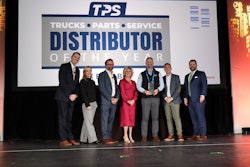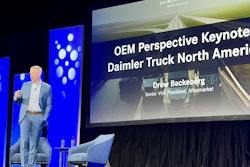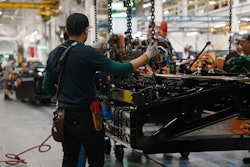By Stu MacKay: MacKay & Company
Replacement truck parts and components manufactured in foreign countries and shipped into the North American heavy-duty aftermarket is an issue of genuine concern. How in the world can we permit interlopers from Asia and elsewhere to copy and produce our parts for our distribution and our customers? Don’t the folks running trucks, trailers and buses today care that this stuff may not be up to snuff? We know how prudently they specify our components when putting together a new truck order, some of them right down to the last lug nut. Don’t they care about where the replacement stuff comes from, too?
Would you like the bad news sugar-coated – or would you prefer it straight? Sugar-coating just doesn’t set well with me, so let’s go at it directly: Most of your customers don’t care where these parts come from, as long as they work. Period. Now that I’ve got your attention, let’s look at the facts.
A study conducted by MacKay & Company involving approximately 1,000 operators and maintainers of medium-duty trucks, tractors and trailers asked about their attitude toward parts manufactured outside the United States. In retrospect, we probably should have changed “the United States” to “North America.” I hope our friends in Canada and Mexico won’t be offended; we certainly weren’t singling them out.
Here’s what your customers said:
- 48 percent said they would use these parts if guaranteed by a distributor or a dealer.
- 18 percent said the source was unimportant if the product worked.
- 14 percent said they had no particular attitude on
the issue. - 2 percent said they would use these parts if they were cheaper than domestic parts.
- Only 18 percent said they would not use imported parts!
As you might suspect, the largest fleets, those with more than 500 power units, were somewhat more encouraging; 34 percent of them would not use imported parts. The bad news? 66 percent said they would.
Let’s look at it another way. Suppose these foreign parts were brought into this market, not with some odd-sounding offshore name, but private labeled, perhaps for a distribution organization, perhaps for a component supplier, perhaps for an OEM. Then what?
Well, that’s the other question we asked in our survey: “What is your attitude toward private label parts and components?” Same thousand maintainers, here’s what they said:
- 39 percent will use these parts if they work.
- 27 percent said they can’t tell who makes the
parts, anyway. - 16 percent had no particular attitude on the issue.
- Only 18 percent said they would not use private brand parts-and would insist on OEM parts!
Of the big guys (500+), 40 percent stated that they would not use private brand parts, only OEM parts. Once again, that means that 60 percent are private brand receptive.
If the guy putting down the money for a brake drum or a bearing doesn’t really care about its origin-as long as it works-where does that leave you? Unless you can create a brand/quality/reliability image that registers with the customer, it may leave you on the outside looking in. And, unless you’ve got the private label base covered, you’re facing another window of jeopardy.
What could be worse? The guys who spec OEM parts when the truck or trailer is assembled really could care less about brand when it comes time for replacement. Most of us have heard the famous radio commentator Paul Harvey’s “The Rest of the Story” routines. Well, here’s the rest of the imported parts story:You’ve been thinking being unloved as a provider of quality products is a new problem, right? MacKay & Company conducted this research in 1982.
Stu MacKay has headed MacKay & Company since its inception in 1968. MacKay & Company serves manufacturers and distribution organizations serving the vehicle, equipment and engine businesses. The company provides its clients with proprietary research and consulting, participation in multi-client studies and its DataMac aftermarket tracking services.
The views expressed in the guest editorial are those of the author and do not necessarily reflect the opinions, beliefs and viewpoints of Truck Parts & Service magazine.







